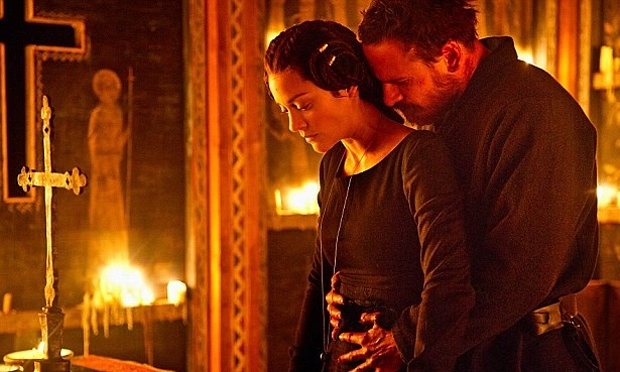
Justin Kurzel’s ‘Macbeth’ is ferocious. The film has a lot to say and it says it with such insight and ferociousness that Shakespeare’s ‘Macbeth’ – a work so famous its mere nickname has a dedicated Wikipedia page – is once again made unpredictable and raw.
The film is faithful to the Scottish Play from first to last, but this is no straightforward adaptation. The movie is beautifully interpretative and nuanced, not bending the original narrative, but rather taking the uncertainties and hints already present in the play and weaving them together into a compelling and persuasive modern take on a much-told story.
Macbeth, an 11th century nobleman, meets three witches who prophesize that he will become king of Scotland. Spurred on by his wife, Macbeth assassinates the current monarch, then crumbles under the psychological cost of murder.
But Shakespeare’s tragedy itself is full of ambiguity and open questions, not the least of which is the murder itself. The witches have proved themselves to be reliable, so it is certain that one day Macbeth will rule. Then why does he have a feeling of urgency to kill the king and ‘catch the nearest way’?
The film succeeds due to the visceral, emotionally stirring explanations that it offers. A brief line in the play alludes to Lady Macbeth having once had a child, and boldly, the movie begins with the funeral of the infant in question. Fassbender and Cotillard proceed to give powerful performances as a couple who still love one another, but are struggling to fill the emptiness that has arisen between them. There is a newfound poignancy in Lady Macbeth’s assertion that she feels ‘now the future in the instant’. These are more than ruthless villains driven by ambition – they are people who can see no other future, and who are fighting for meaning in a life ‘signifying nothing’.

And then there is war, ravaging Scotland, and Macbeth the soldier, forced to kill. There are echoes of ‘Apocalypse Now’ in the film’s treatment of post-traumatic stress disorder, and the way humans respond to violence. ‘I wept,’ says Colonel Kurtz in ‘Apocalypse Now’. ‘I wanted to tear my teeth out… and then I realized… my God… the genius of it!’ A similar idea is palpable in the way Fassbender’s Macbeth is simultaneously wounded and enraptured by his own acts of brutality.
Shakespeare’s ‘Macbeth’, like one of its most famous lines, is full of ‘sound and fury’. To this verbal and thematic intensity Kurzel adds striking cinematography and gorgeous visuals, noteworthy in and of themselves. This is, however, both a strong point and a problem. The movie overwhelms. The images complement the dialogue for the most part, but there are times when script and visuals distract from one another – and before one has time to consider either, the movie has moved on. The pacing is relentless, and there are no pauses either in the action, or in the tone. The drunken porter of the original play, telling jokes on stage to provide the audience with a welcome break, has been cut out completely.
Had the film let its images linger on screen for a little longer, been a little slower, it might have been less intellectually and emotionally exhausting. As it stands, it does not allow enough time for one to consider the ideas it puts forward, which is a shame, precisely because the insights it delivers are so worthy of consideration. Ultimately though, ‘Macbeth’ is a brutal, beautiful movie with a persuasive point of view, and two exceptionally good lead actors. Its atmosphere lingers, long after the final credits stop rolling.
By Lisa Feklistova

